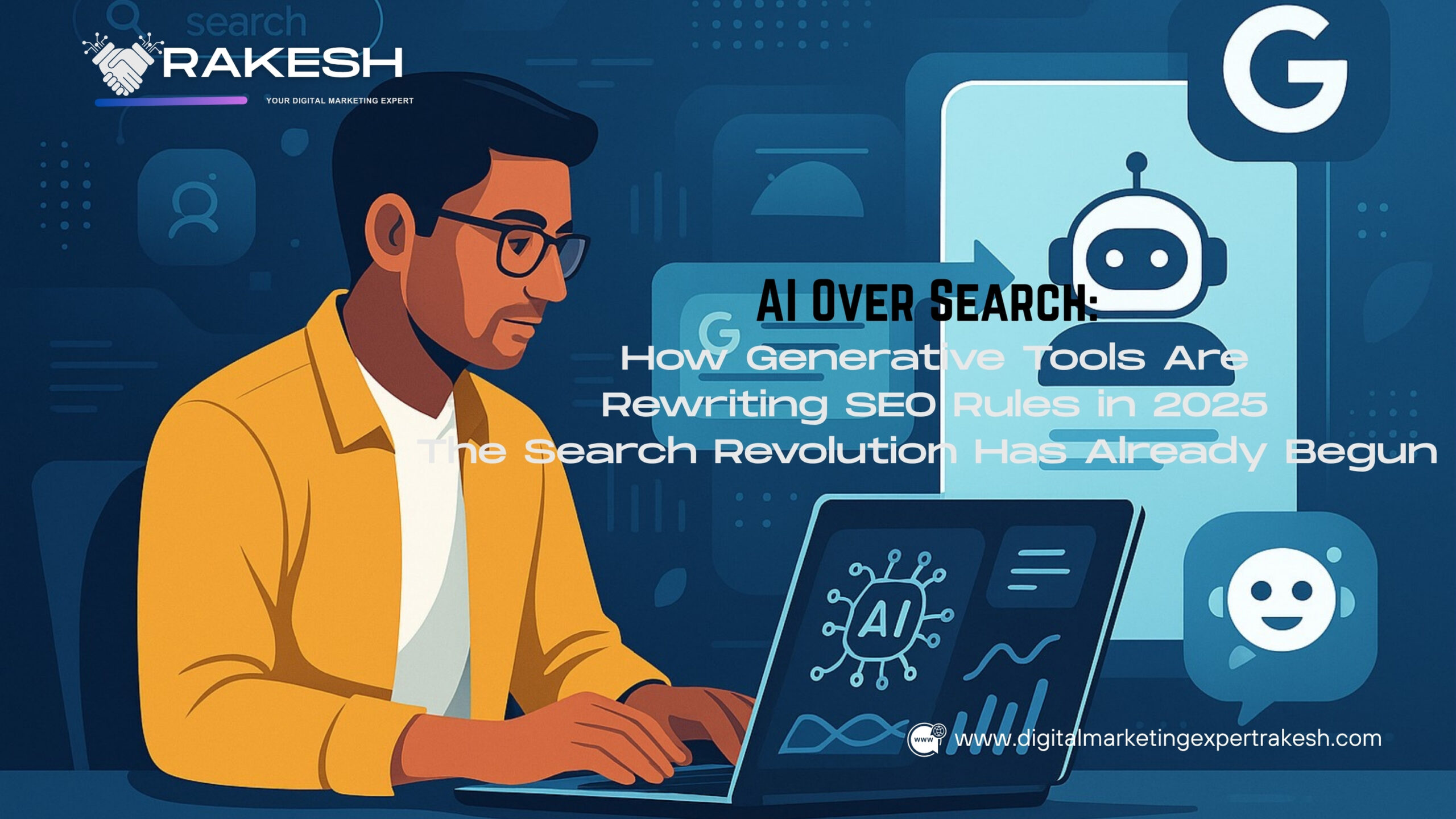The Search Revolution Has Already Begun
If you’ve been in digital marketing long enough—as I have—you’ve seen algorithms evolve, platforms rise and fall, and consumer behavior shift faster than we can forecast. But nothing has disrupted the search landscape quite like generative AI in 2025.
We’re now witnessing a major change: people aren’t “Googling” the way they used to. Instead, they’re turning to AI tools like ChatGPT, Gemini, and Copilot for quick, summarized, and contextual answers.
This isn’t a passing trend. It’s a transformation. And if your SEO strategy still revolves around ranking #1 on Google alone, you’re playing yesterday’s game.
Why Are People Moving Away from Traditional Search?
The answer lies in user behavior—it’s becoming more intuitive, conversational, and time-sensitive. Today’s users want:
- Direct answers, not ten blue links
- Summaries, not scrolling
- Confidence, not clutter
Generative AI delivers all of this in seconds. Instead of asking, “What is content marketing?” on Google, users now type, “How can content marketing help my small business in Odisha?” into an AI assistant—and receive a customized, clear, and concise answer.
This shift in consumer preference is what’s redefining the role of SEO today.
What Are Generative AI Tools Doing Differently?
AI platforms aren’t just retrieving data—they’re interpreting intent, scanning billions of data points, and generating cohesive responses.
Tools like:
- ChatGPT (OpenAI)
- Gemini (Google)
- Bing Copilot
- Claude (Anthropic)
…are providing context-rich answers with citations, links, and even brand mentions. That means visibility is no longer just about ranking on SERPs—it’s about being referenced and respected in the AI conversation loop.
How This Affects Your SEO & Content Strategy in 2025
Let’s be clear: traditional SEO isn’t dead—but it has evolved.
Here’s what smart businesses are doing:
1. Creating AI-Readable Content
Long-form is great—but structure matters more. AI prefers:
- Clear headers (H2/H3)
- Bullet points
- FAQs
- Actionable takeaways
2. Focusing on Topical Authority
AI tools rely on trusted sources. That means your domain authority, internal linking, and topical relevance must be stronger than ever.
3. Optimizing for AI Summaries & Overviews
Google’s “AI Overviews” now pull data from multiple sources. You need to:
- Provide clear answers within your blogs
- Use schema markup for context
- Include concise definitions, examples, and statistics
4. Going Beyond Keywords
In the AI age, it’s about intent clusters—answering all related questions your audience may ask, not just optimizing for isolated keywords.
Action Plan: What Businesses Should Do Right Now
If you’re running a startup, SMB, or local brand, here’s what I advise (and what I implement for my clients):
✅Re-audit existing content – Is it useful for humans and AI?
✅Create cluster-based blogs – One pillar, many supporting articles
✅Add real expertise – Case studies, personal stories, data insights
✅Keep updating – AI rewards fresh, relevant content
✅Get featured – Try to be mentioned in forums, reviews, media, or thought-leadership articles AI scrapers use
Final Thoughts: Adapt or Fade into Obscurity
As someone who’s been in this industry for over a decade, I’ll say this bluntly:
If your brand isn’t optimized for AI-based discovery, it’s slowly disappearing.
The brands that win in 2025 will be the ones that understand this shift and act—not react.
So whether you’re building a blog, launching a product, or managing a brand—think beyond Google. Think about how AI sees your content.
Let’s not just play the search game. Let’s lead it

